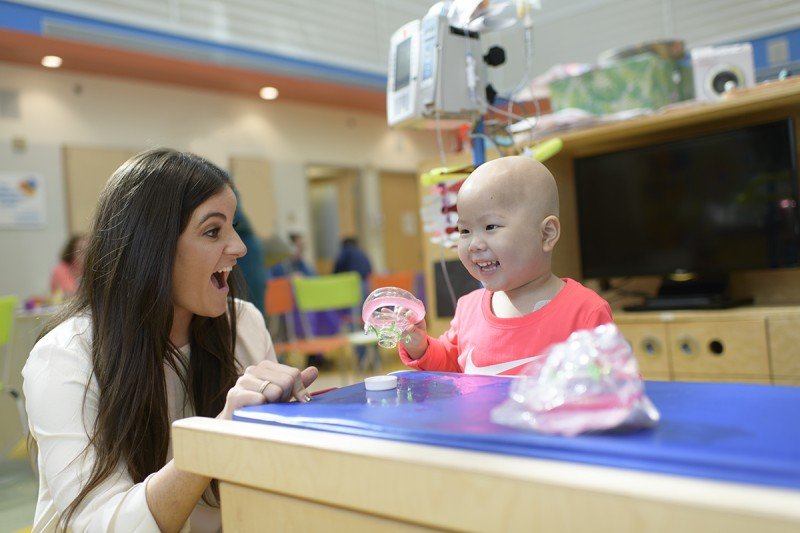
It’s before dawn in New York City, but the day is already well under way for Maria Martin.
Ms. Martin is a child-life therapist at Memorial Sloan Kettering, and part of her job entails guiding young patients through the process of undergoing surgery.
Her work is part of a new initiative at MSK focused on family-centered care for children, teens, and young adults who need an operation. At MSK, surgeries take place on a floor that is typically reserved for adults. Experts across various departments recognized that issue, and the need to foster an environment that caters to young people.
The efforts are paying off, according to those closely connected.
“Child life has impacted the peri-operative period in so many ways,” says Vittoria Arslan-Carlon, Director of Pediatric Anesthesiology at MSK. “Families might feel that coming to the operating room is scary, but everyone in child life has been working really hard to bridge the divide. I personally feel really at ease when they are around.”
The day of surgery starts early, but the introductions with the care team begin long before the family arrives. Ms. Martin usually meets patients during their preoperative appointment with their surgeon. She prepares children for their upcoming surgery in developmentally appropriate ways, using props like puppets with chemo ports, anesthesia masks that can blow bubbles, and candies that mimic pills for swallowing. Although many of Ms. Martin’s patients are kids, she also helps teens and young adults get ready for the day with more age-appropriate tactics. But no matter how old the patient is, these presurgical meetings help build confidence, trust, rapport, and familiarity.
“Supporting all my patients through their experiences in the hospital is my main focus,” she says. “Preparing them for what to expect is a huge part of how they’re going to cope.”
On the day of surgery, Ms. Martin or another MSK child-life therapist, Megan Sappenfield, is one of the first people a young person sees once checked in. She reviews with the patient and family what they discussed at the presurgical appointment, and also introduces them to options they have before the surgery begins.
Children can have anesthesia through a mask or an IV, have a parent walk with them into the operating room, and also have music playing while they fall asleep. In addition, they can visit the operating room in advance of their procedure to see what it’s like. Ms. Martin helps the patient and family make these decisions, and then advocates on their behalf.
Putting kids in control of certain aspects of their care empowers them, Ms. Martin says. “It’s all about finding what works for them.”
From there, the patient meets various other members of his or her care team for the day, including presurgical nurses, anesthesiologists, operating room nurses, and others. But starting the day with a child-life therapist establishes a level of comfort, Ms. Martin says.
If there is a waiting period before surgery begins, Ms. Martin may also spend time playing with her young patients. It’s all in an effort to normalize the experience for them, she says.
“Play is how children communicate, understand their surroundings, and express themselves,” says Ms. Martin. “It serves a huge role. As child-life specialists, we want kids to be kids.”






